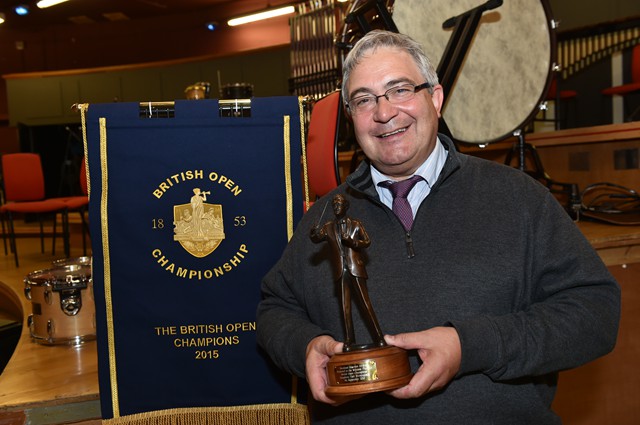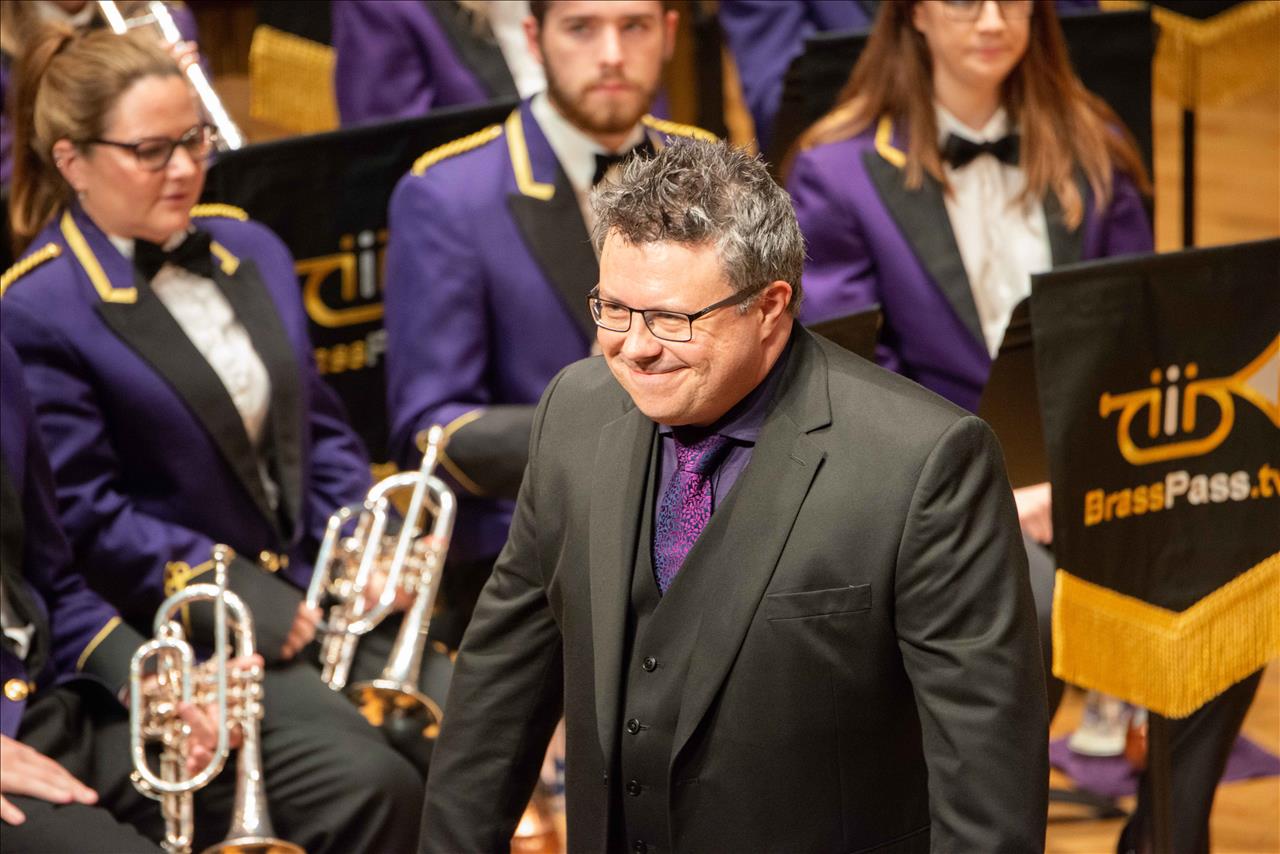
The Beast of Bolsover in full flight...
Grimethorpe Colliery Band has been in danger of becoming the Dennis Skinner of the British brass band movement; a working class icon of widespread affection, if ever-decreasing relevance.
The 87 year old Labour MP, the once feared ‘Beast of Bolsover’, is now seen as a somewhat toothless antagonist – more famous for his pithy, acerbic humour than any of his political achievements. Rooted in a culture that has undergone seismic change, his heyday is now passed.
It is a fate that now haunts the possible future of one of the most famous banding names in the world.
Anti-hero
British banding, like British politics has always needed a firebrand anti-hero walking a path of principled individualism: For years in Westminster that was Dennis Skinner, and in the contest and concert bubble of the banding movement it was Grimethorpe.
However, even their heyday now seems to belong to a different era.
The 87 year old Labour MP, the once feared ‘Beast of Bolsover’, is now seen as a somewhat toothless antagonist – more famous for his pithy, acerbic humour than any of his political achievements.
In the last decade or more they have won just three titles - Brass in Concert in 2010 and 2014 and the British Open in 2015, and (like nearly every top band) a once burgeoning concert diary has shrunk.
Their last published accounts (Dec 2017) showed a drop in income from over £260,000 to £184,000 in just three years.
They have been spending more than they have been earning. Idiosyncratic principles alone don’t pay the bills.

Dr Robert Childs was the last MD to bring major contest success to the band in 2015
Rumours
However, rumours (and Grimethorpe has always had its fair share of urban myths and half truths) also persist of late payments to conductors and profitable concert fees chipped away by dep payments and expenses.
As one former player told 4BR, those seeking to push the band forward both on and off the concert and contest stage have seen progress measured in two small steps forward followed by one big step back.
High profile MDs and resident conductors have been appointed and then let go (or resigned) without being able to impose a long term strategy of musical development. Significant recordings and artistic projects have become rarities; the band’s centenary passed in 2017 with barely a high profile event to its name. It’s been a litany of missed opportunities.
MDs and resident conductors have been appointed and then let go (or resigned) without being able to impose a long term strategy of musical development. Significant recordings and artistic projects have become rarities; the band’s centenary passed in 2017 with barely a high profile event to its name. It’s been a litany of missed opportunities.
Now Grimethorpe has perhaps finally woken up to the fact that they need a decisive leap forward with a number of hard working people realising that things have had to change to mould a new musical as well as administrative outlook.
However, the very kernel of their self inflicted problem lies in their own self-identification.
Cinematic aspic
The press release that accompanied the news that Dr David Thornton was to become their new Musical Director with immediate effect summed it up; describing him as being appointed to “...the world’s most famous Colliery band.”
35 years have lapsed since the Miners’ Strike and 26 have passed since the closure of the Grimethorpe pit - yet here was an announcement made in the present tense as if nothing has changed since George Thompson and Elgar Howarth, the Three-Day Week and Arthur Scargill - a public identity forever linked to the fairytale of ‘Brassed Off’ – itself pickled in 23 years of cinematic aspic.
The band doesn’t even take part in the Mineworkers Championship anymore.

Dr David Thornton took his last contesting bow with Brighouse at the UK Band of the Year contest
Greatest challenge
This then will be David Thornton’s greatest challenge as he walks into the bandroom.
He is a musician of the highest calibre; ambitious, hard working, determined, but above all else, realistic.
His conducting, though still not the finished article, is intuitive, informed and rooted in musicality. He left Brighouse & Rastrick in a much better state than when he first arrived, thanks in no small part to an inclusive ability to inspire players to mirror his own commitment to self-improvement.
If he gains the backing he deserves, the measure of success will not be about getting back to winning contests (there is enough talent in the ranks to do that over the next few years) but to reinvigorate a new Grimethorpe identity for excellence that isn’t hamstrung to an increasingly distant, affectionately misinformed past.
If he gains the backing he deserves, the measure of success will not be about getting back to winning contests (there is enough talent in the ranks to do that over the next few years) but to reinvigorate a new Grimethorpe identity for excellence that isn’t hamstrung to an increasingly distant, affectionately misinformed past.
Relevant again
The general public may still lap up ‘Orange Juice’, ‘Death or Glory’ and ‘William Tell’ like over-polished fake miner’s lamps, but there is still an appetite for informed audiences to hear the type of world class ensemble that has also showcased music by Harrison Birtwistle, Hans Werner Henze, Toru Takemitsu and Howarth himself.
Grimethorpe at its best was a band performing with a chip on its shoulder; an individualistic sense of musical adventure and daring, heart on sleeve, principled, passionate music making that paid homage to its past but always had one eye on the future.
David Thornton’s appointment is an ambitious sign of a realisation that those very strands of musical DNA were being lost in short terms fixes and easy to manage options.
It is about a very different future identity. It is hopefully about a brass band icon becoming relevant again.
Iwan Fox













